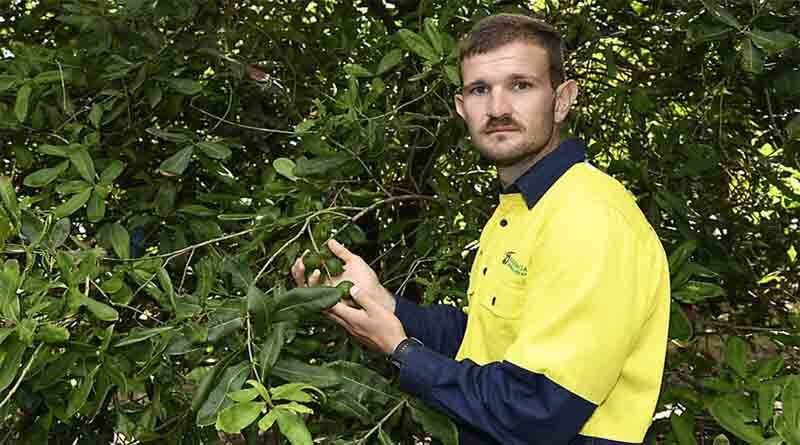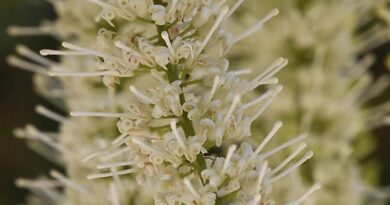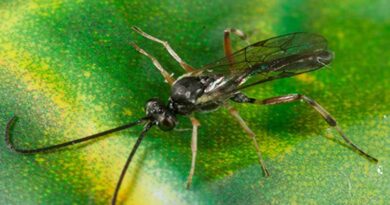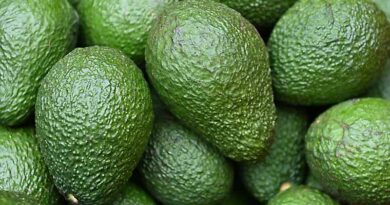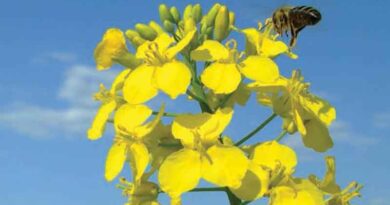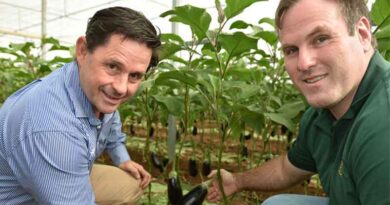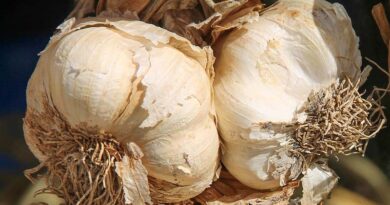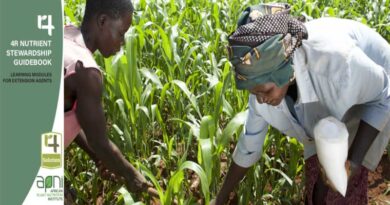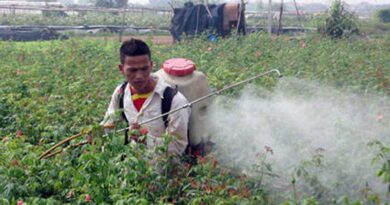Beneficial insects controlling pests on Macadamia orchards
08 June 2022, AU: A range of beneficial insects are being used as part of an integrated pest management strategy to control pests in macadamia orchards operated by Macadamia Farm Management.
Operations Manager and Horticulturist Manager, Theunis Smit, said the company philosophy was to achieve high quality macadamia nuts by relying on native species of beneficial bugs to get through the season safely.
It also means positioning favourable chemistry through the season to assist the beneficial insects in controlling pests.
“An integrated pest management strategy still involves chemicals,” Mr Smit said. “It’s just how you use them and where you position most of those chemicals in the system.”
The company manages 3000 hectares of macadamias in the Wide Bay area of Queensland and will generally not spray an insecticide on the trees from January through until late August.
“We really give the beneficial insects and everything else a chance to regroup,” Mr Smit said.
Beneficial insects are also released across the farms on a fortnightly basis and insecticides are chosen to complement the integrated pest management program.
“Most of the time we use a softer chemistry. It’s usually a little bit more of the expensive chemistry but completely worth our while,” Mr Smit said. “It’s no use putting out a lot of beneficial insects just to spray them and kill them the next week.
“Our general approach on these farms has been to leave it in a no spray zone for about four to five months. As soon as we do get into a spraying season, we really start off with the soft chemistry.
He said an insecticide is used to stop the massive population growth of the insects they are trying to control.
“The issue with monoculture crops is that you do get build-ups of massive pest problems and your beneficials just struggle to do it all by themselves. That’s why most of these integrated strategies, with the correct chemicals, have helped us quite a lot.”
The key insecticide used is Transform® WG, from Corteva Agriscience to control Fruit spotting bug and Banana spotting bug. Transform® has been fantastic for us,” Mr Smit said. “We know that it works. Our scouting records confirm that it really gives us some good results. We’ve seen this through multiple seasons now where we’ve actually gotten really good quality results, and really low damage from insects.”
“Transform is usually our first spray of the season. That’s simply because it’s such a soft product. It’s either the first or second spray, depending on what the situation is, and what we are scouting and finding in the orchards. We do find that we don’t see a significant decline in our beneficial insects during that time.”
Mr Smit said quality was the major consideration and each step in the program was designed to achieve this goal.
“We really believe in getting some good quality for our nuts. Quality remains key for an enterprise of size and for our reputation as well.”
He said they were also focused in looking after the environment and that helped drive the management decisions made in the macadamia orchards.
“We’ve got an environmental responsibility and we’ve got a responsibility towards our community as well. We definitely know that without the release of those insects, we will end up in more trouble than we actually can handle.”
“We’re after a natural progression and striving to be a little bit better every year. It brings challenges and we accept those challenges and I think it’s good to have companies work with you trying to solve those challenges.”
“It’s just good to see that you’re getting the support from industry and from the greater community, just to try and see if we can make things better in general.”
“Going forward, our aim would always be to have a reduced set of chemistry and be more specific with what we do and how we do it. Keep our people safe, keep the environment safe, and see how nature takes care of itself.”
Also Read: Crop Care Federation of India (CCFI) launches latest video on farmer welfare & training programs

